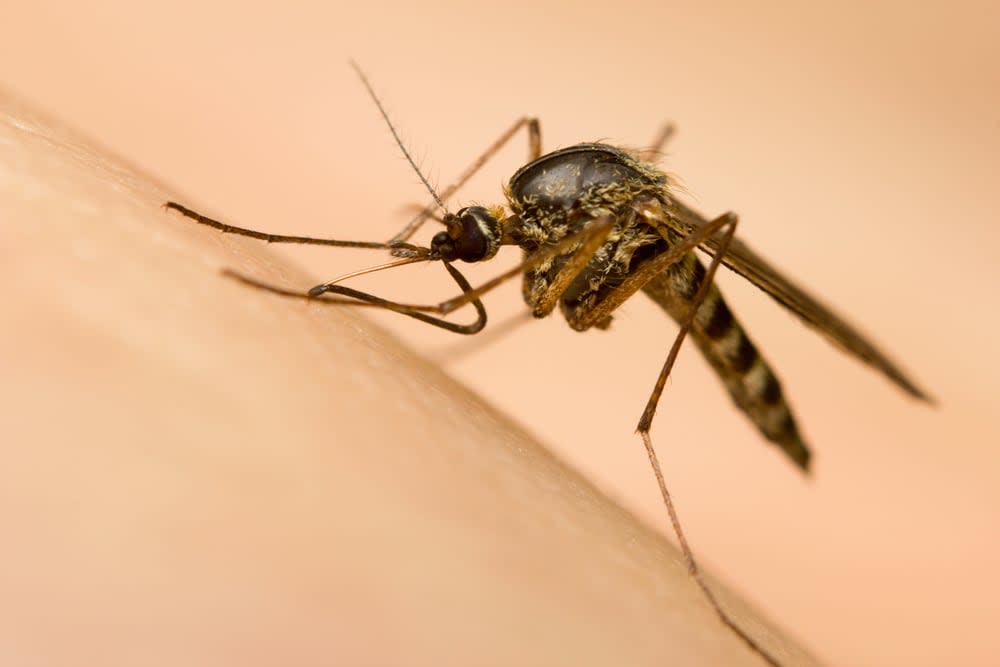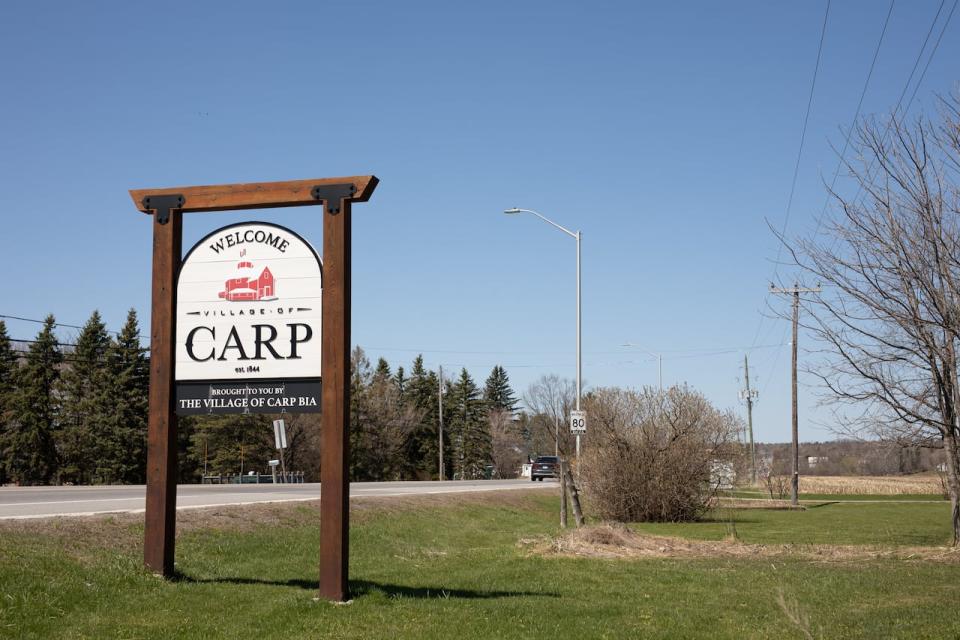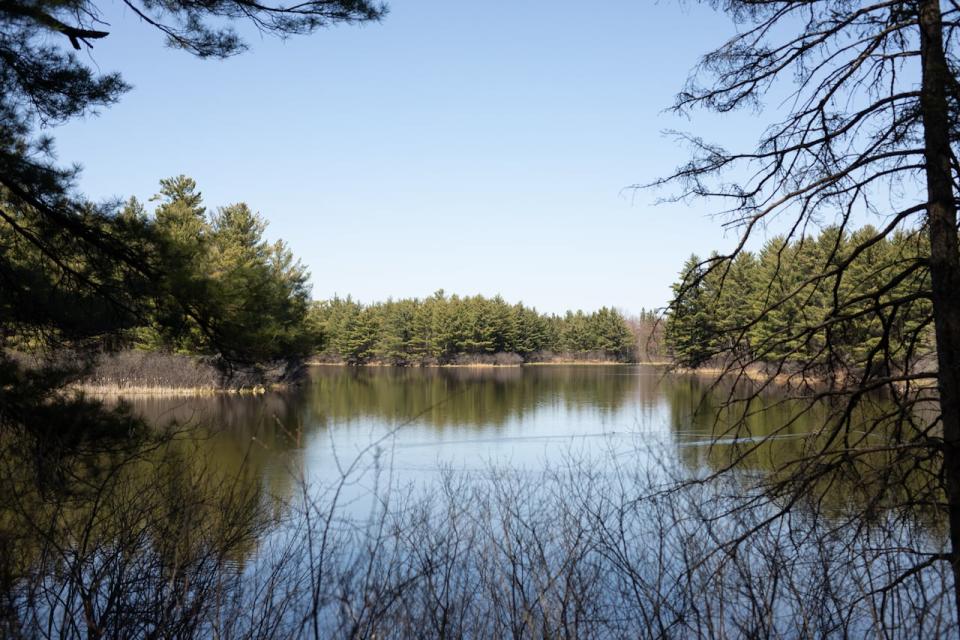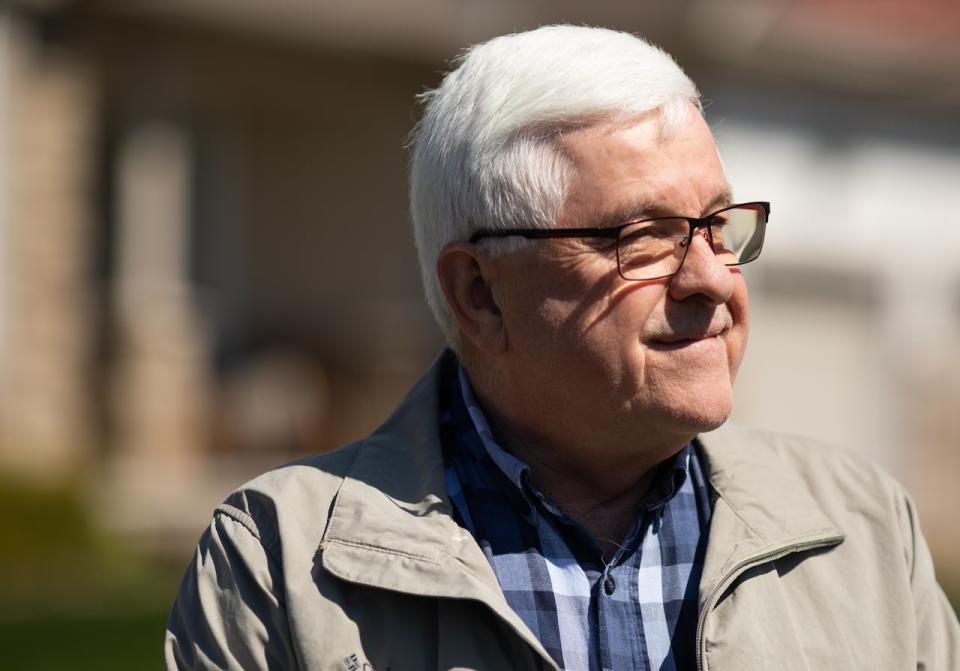Bad mosquito season prompts calls for relief in Carp, but control program could be pricey

People living in Carp may soon have to decide how much it's worth to live their lives relatively free of mosquitoes, as the sting of last year's itchy summer has them pondering a pricey form of relief.
"Last year was dreadful," said Paul Hayward, who lives near a small lake some locals call a mosquito breeding ground. "If you were outside doing anything — gardening, walking, just sitting outside — it was unbearable."
"They've increasingly gotten worse," said Kristin Rice, who lives just outside the village. "It's crazy. You cannot go outside. It's impossible."
"Any time of the day, it doesn't matter, mosquitoes are terrible," said Mélanie Ruest, who calls herself a mosquito magnet. "I hate mosquitoes."
West Carleton-March Coun. Clarke Kelly has been hearing a rush of complaints just like that. In Carp and nearby communities, the mosquitoes can be so bad that some folks "can't even stand outside for five minutes without getting eaten alive," he said.
"This year we started hearing about it really early..." Kelly said. "It's affecting people's lives and their ability to have fun and enjoy their property during the summer months."

Kelly says he's asked the company behind the Kanata North Nuisance Mosquito Control Program for a quote on how much it would cost to treat the Village of Carp. (Arthur White-Crummey/CBC)
He said many residents have been urging him to copy a mosquito control program in neighbouring Kanata North. It has him asking how much it would cost to bring it to his rural ward.
The answer, he now thinks, is a lot.
Vast ward means vast costs for homeowners
The Kanata program relies on natural bacteria that produce a protein toxic to mosquito larvae. It costs about $20 a year per residence, a sum tacked onto the property tax bills of homeowners in the area.
But spreading the bacteria across a vastly larger rural area with low population density could cost much more. For a control program over the whole ward, Kelly expects the tax levy could easily exceed $1,200 per year.

West Carleton-March Coun. Kelly has been hearing a rush of complaints about mosquitoes. (Jean Delisle/CBC)
He sent that information to residents this week, saying it's important to understand the challenges of applying the Kanata North model to West Carleton-March.
Still, he's asking for a quote from the company behind the Kanata program, specifically for the area of the Village of Carp.
"I did that just for the purpose of the conversation," he said. "The official process to start this program has not been initiated."
But he warned that it could be complicated to draw a line dictating where the program should begin and end.
"If they were to protect the village of Carp, there's a sizeable area around the village that they would need to spray," he said. "So how does that get paid for?"
Some for it, others 'adamantly opposed'
Kelly said he's been hearing from people who support the idea, and others who are "adamantly opposed." He is now working on organizing a town hall to discuss the cost and effectiveness, and said he will take his cue from whatever consensus emerges.
"For me, it's very much going to be up to the community whether or not this gets explored any further," he said.

Hidden Lake, located near the residence of Paul Hayward, has a reputation among some locals as a breeding ground for mosquitoes. (Arthur White-Crummey/CBC)
"I still would like to hear more from the public before I take a firm position either way."
Ruest said she would be willing to pay more property taxes to enjoy her summers again.
"I think it would be worth it," she said.
But she wasn't sure precisely how much it would be worth. Neither was Hayward.
"I've got an idea of what they're paying in north Kanata, and if it was something like that, I would be all in," he said.
"A thousand dollars, I would say no... If it was $100, I would say yes, but we'd have to see."

Carp resident Paul Hayward says he would be willing to pay for a mosquito control program, but not a tax levy of $1,200 per year. (Arthur White-Crummey/CBC)
Rice said it sounds great in concept, but agrees with Kelly that it could be "a tough go."
"There'd be some struggles," she said. "Where I live, you can't just spray everything."
Kanata North councillor wants wider program
Data on the Kanata North Nuisance Mosquito Control Program was enough to convince residents there to vote to renew it this year, by a resounding margin of 3,320 to 721.
The local councillor, Cathy Curry, said it makes sense to expand it, since mosquitos don't respect ward boundaries.
"The fact that we're just doing one section of the city is a little bit of a challenge, because mosquitos travel," Curry said after the vote this winter.

Coun. Cathy Curry represents Kanata North, where residents voted overwhelmingly to renew the program this winter. (Francis Ferland/CBC)
"So I've said to my council colleagues, let's talk, and I think they're on their own investigating it. So there's a possibility that it might grow, and I would encourage them to do that."
But there are a lot of steps ahead before that could happen. Extending the program to West Carleton-March would require a months-long consultation period, a public meeting, a vote and a petition signed by two-thirds of property owners in the affected area.
"There are people in the community who want this," said Kelly. "They want it badly and they want it yesterday. And for those people, I would just like to reiterate that it is a complex and very prescriptive program."
Kelly said all those steps make it unlikely that there could be any relief before 2025.


